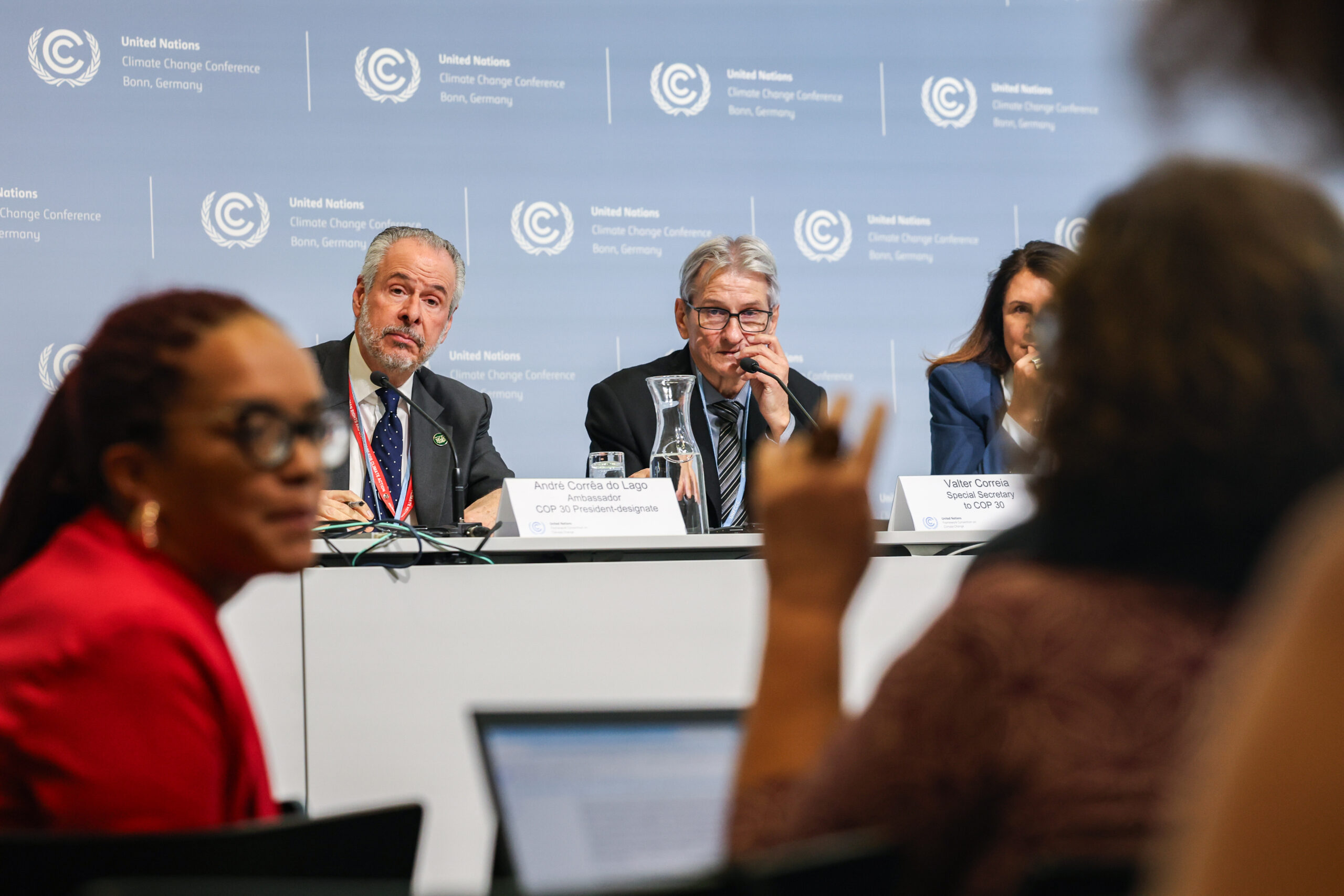The COP30 president warned on Tuesday there are differences in how governments think the international community should respond to an upcoming review of countries’ plans to cut planet-heating emissions – divergences he said “can and must be bridged”.
To that end, André Corrêa do Lago, a veteran Brazilian diplomat who will lead talks at the UN climate summit in the Amazon city of Belém in November, said he was “determined to provide all conditions for frank, open, and creative dialogue”.
That will include a series of consultations, starting in the coming weeks with an online session for all countries, he noted in an open letter – the sixth he has issued so far.
Corrêa do Lago said he hoped to collect initial views on “the form and content” of a global response to the latest round of national climate plans, which are due to be submitted by the end of September, as well as a summary report the UN climate change body plans to publish in October.
This UN “synthesis report” will assess cumulative efforts to lower greenhouse gas emissions by 2030 and 2035, according to the targets set out by governments in their plans known as “nationally determined contributions” or NDCs.
The last such report, issued in 2024, said that current national plans combined – if fully implemented – would see emissions of 51.5 gigatonnes of carbon dioxide equivalent in 2030, a level only 2.6% lower than in 2019.
That falls far short of the 43% reduction by the end of this decade that the Intergovernmental Panel on Climate Change says is needed to have a good chance of limiting global warming to 1.5C above pre-industrial times, now seen as the primary goal of the Paris Agreement.
By 2035, net global greenhouse gas emissions need to be cut by 60% compared to 2019 levels. The 2025 synthesis report will be the first to review targets for 2035.
“Collective responsibility” to respond
While the COP30 president did not go into details about how countries differ in their ideas on how the world should respond to the upcoming synthesis report’s findings, some are expected to want to downplay its importance and the urgent need to step up climate action.
Experts have said the report is likely to show that planned efforts are way off track to limit global warming to 1.5C on a long-term basis, even as 2024 was the first full calendar year to register average temperatures above that key threshold.
Leaders should put the Amazon at the heart of a new green economy
“If the image shown by our integrated NDCs turns out disappointing, it is our collective responsibility to convert it into a picture that will ensure a livable planet, protect all economies, and improve living standards and life opportunities for all peoples, for all generations,” stated the COP30 president’s letter.
Corrêa do Lago hinted also that some countries do not believe COP30 is the place to formally address any shortfall in ambition because that is not on the agenda and there is a dedicated process called the “Global Stocktake” (GST) every five years.
How to implement the Global Stocktake
In 2023, the first GST resulted in what was hailed as a historic global commitment to transition away from fossil fuels in energy systems – but little has since been done to put that pledge into practice.
Deep divisions have stalled discussions in the official “dialogue” on implementing the GST. Most developed countries, small island states and the AILAC group of Latin American nations want to use that forum to take stock of “collective progress” towards meeting the GST goals. But others, including the Like-Minded Developing Countries – which counts China and Saudi Arabia among its members – and India, have pushed back.
In his latest missive, Corrêa do Lago noted that, as many countries have pointed out, “we do not seek to prejudge the second GST or undertake an intermediate assessment. Rather, we will be seeking to enhance implementation.”

In a statement, Observatório do Clima, a network of more than 50 Brazilian organisations working on climate issues, said the focus on the NDCs in the letter “is a strategic move, as their adequacy will be a key determinant of whether Belém is considered a success or failure”.
But, so far, only around one-fifth of countries have submitted their latest NDC, with high-emitters – including the European Union, China and India – yet to do so.
Opportunity to unveil NDCs at UN chief’s event
Observatório do Clima said climate ambition must be “greatly increased” to ensure a 60% global emissions cut by 2035. But, it warned, “the chances of this happening are slim”, especially as the world’s second-largest emitter, the US, is quitting the Paris Agreement and “actively opposing its objectives”.
Belém “must deliver a political response to the insufficiency of countries’ targets”, it said, adding that some countries are resisting this approach. Some, like China, view any evaluation of progress before the next five-year GST review as interference in domestic affairs, it added.
The COP30 president’s letter noted that a high-level event to be organised by the UN Secretary-General on September 24, on the sidelines of the UN General Assembly in New York, will provide a “major platform” for countries that have not yet done so to unveil their new 2035 emissions reduction targets. These, he said, are governments’ “ultimate show of support for COP30, to the multilateral climate regime, and to a more prosperous future”.
Marcio Astrini, executive secretary of Observatório do Clima, said: “The letter reflects the kind of leadership negotiation COP30 needs.”

